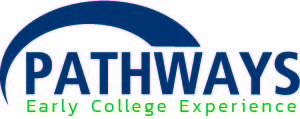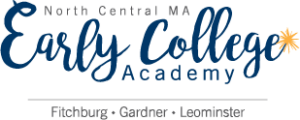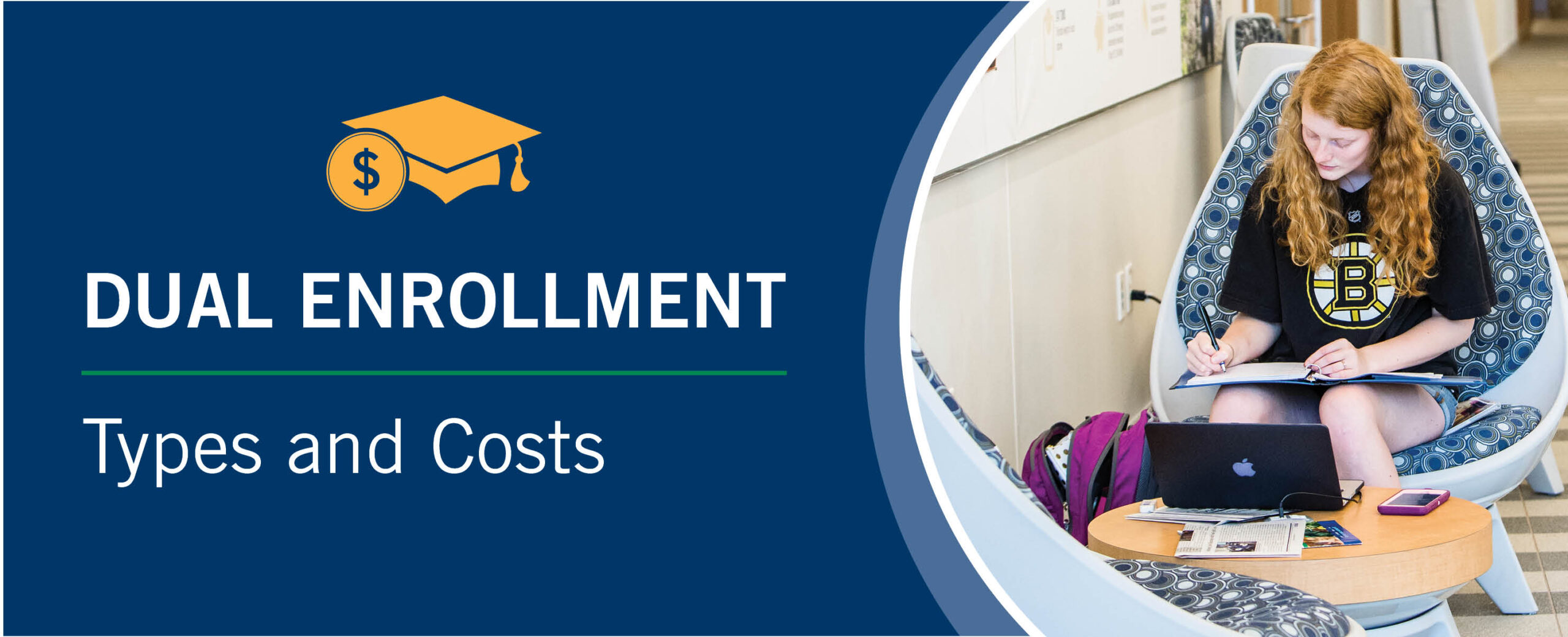 What is Dual Enrollment?
What is Dual Enrollment?
How does dual enrollment work?
Who is eligible for dual enrollment?
What are the benefits of dual enrollment?
Dual Enrollment Types & Costs
What is the right dual enrollment program for me?
What is dual enrollment?
Whether in high school or home school, dual enrollment allows high school-aged students to earn credit for both their high school diploma and college degree simultaneously. Dual enrollment offers students a real-life preview of what college courses are like, with a supportive team of counselors. It also offers students the opportunity to choose from a wider variety of classes than may be available to them at their high school. High school students seeking an academic challenge, but not seeking course credit for high school can also participate.
Early College is a major part of dual enrollment offerings at MWCC. Early College programs are intentionally designed to support students in the development of career interests and selection of a broad academic pathway, prior to and/or alongside college-level coursework. Early College students must commit to taking 12+ college credits by high school graduation, within the academic pathway of their choice. Students enrolled in Fitchburg Public Schools, Leominster Public Schools, Gardner Public Schools and Sizer School are eligible to participate in Early College dual enrollment programs.
How does dual enrollment work?
Students are enrolled in either a part-time or full-time course load depending upon their program and course needs. MWCC Academic Advisors meet with the students to help them register for classes, and work throughout the semester to support the student as needed. Advisors collaborate with high school guidance counselors to make certain that students are meeting their high school graduation requirements with the courses they are enrolled in.
As a bonus, dual enrollment students do not have to give up high school extra-curricular activities. They are still eligible to participate in sports and other activities such as Prom.
Who is eligible for dual enrollment?
Whether in high school or home school programs, juniors and seniors (age 16 or older) are eligible for dual enrollment. Students who come from diverse or low-income backgrounds, or who have not had a parent graduate from college are strongly encouraged to apply. Dual enrollment applicants must also have approval or recommendation from their guidance counselor and participate in an interview and/or selection process. Application processes vary slightly by dual enrollment program, but all have a process and require some preparation.
Some dual enrollment programs require evidence that students will be able to do college-level coursework. This is determined through a combination of GPA, college placement testing, and/or guidance counselor or teacher recommendation. Some dual enrollment programs have GPA requirements and some do not. Working with an admissions counselor at MWCC will help determine what the best program is for a particular student.
Students seeking to take college coursework without transferring the credits back to their high school are eligible to take a maximum of two courses per semester if they meet the placement requirements and have at least a 2.5 GPA.
What are the benefits of dual enrollment?
After successful completion of a semester (with a C or better), dual enrollment students will be awarded college credits that are transferable to most two and four-year public institutions and may be transferable to private institutions. In addition, students will receive credit from their high school to meet graduation requirements. Students are responsible for ensuring that MWCC college coursework will be acceptable for secondary school diploma completion through their guidance counselor, and for submission of transcripts to post-secondary institutions for credit consideration and transfer.
Dual Enrollment Types & Costs
There are several different kinds of dual enrollment programs, and the costs vary based on program and available funding. Dual enrollment students are not eligible for federal financial aid, however, some dual enrollment programs are grant-funded.
Commonwealth Dual Enrollment Partnership (CDEP)
The Commonwealth Dual Enrollment Partnership is a state-funded dual enrollment program open to any MA high school junior or senior, or home school student with at least a 2.5 GPA who meets the course prerequisites. Courses offered fall within the Mass Transfer program for college credits that will transfer to any public four-year and many private institutions.
Gateway to College
 Gateway to College is an alternative to high school for students ages 16 – 21 who have dropped out of high school or are at risk for dropping out and have not yet earned a high school diploma. Gateway to College is taught entirely at MWCC and gives students the opportunity to earn both their high school diploma and credits toward an associate degree. Students in the Gateway to College program must either come from or school choice into, the Gardner Public School district. The program is free and provides intensive advising and coaching supports. There are no GPA requirements, but students must have at least attempted the 9th grade.
Gateway to College is an alternative to high school for students ages 16 – 21 who have dropped out of high school or are at risk for dropping out and have not yet earned a high school diploma. Gateway to College is taught entirely at MWCC and gives students the opportunity to earn both their high school diploma and credits toward an associate degree. Students in the Gateway to College program must either come from or school choice into, the Gardner Public School district. The program is free and provides intensive advising and coaching supports. There are no GPA requirements, but students must have at least attempted the 9th grade.
Pathways Early College Experience
 Pathways Early College Experience is open to MA resident students entering Grade 11 who are at least 16 years old and possess a minimum 3.0 GPA. Students must test into college-level courses to participate. Pathways students complete general education requirements that count towards a high school diploma and a degree in Interdisciplinary Studies. The program is free, and most books are provided within the first year; the second year may have some book/supply cost associated with specific courses selected by each student. Learn more about Pathways Early College Experience from graduate Kaitlyn Fales who is now in graduate school.
Pathways Early College Experience is open to MA resident students entering Grade 11 who are at least 16 years old and possess a minimum 3.0 GPA. Students must test into college-level courses to participate. Pathways students complete general education requirements that count towards a high school diploma and a degree in Interdisciplinary Studies. The program is free, and most books are provided within the first year; the second year may have some book/supply cost associated with specific courses selected by each student. Learn more about Pathways Early College Experience from graduate Kaitlyn Fales who is now in graduate school.
North Central MA Early College Academy
 The North Central MA Early College Academy is open to students enrolled at Fitchburg High School, Leominster High School / CTEi, Gardner High School and Sizer School. This program engages students in an experience that combines job field exploration with college coursework, with considerable academic and student supports. This program is entirely free for students, including books. Chromebooks or laptops are also available for loan free of charge. Students can enter this program beginning in the 9th grade, with dual enrollment college coursework taking place in 11th and 12th grades.
The North Central MA Early College Academy is open to students enrolled at Fitchburg High School, Leominster High School / CTEi, Gardner High School and Sizer School. This program engages students in an experience that combines job field exploration with college coursework, with considerable academic and student supports. This program is entirely free for students, including books. Chromebooks or laptops are also available for loan free of charge. Students can enter this program beginning in the 9th grade, with dual enrollment college coursework taking place in 11th and 12th grades.
Fire Science Technology
 Students in their junior or senior year from our service area are eligible to participate in our Fire Science Technology Dual Enrollment program, which is taught at Fitchburg High School. This free program holds classes virtually, with an in-person component required one Saturday each month, conducted at the Fitchburg or Westminster fire station. Students attend Fire Science Technology classes as electives in conjunction with their high school classes. Learn more about the Fire Science Technology Program from Patrick Haverty, Fire Science Adjunct Faculty and his students at Fitchburg High.
Students in their junior or senior year from our service area are eligible to participate in our Fire Science Technology Dual Enrollment program, which is taught at Fitchburg High School. This free program holds classes virtually, with an in-person component required one Saturday each month, conducted at the Fitchburg or Westminster fire station. Students attend Fire Science Technology classes as electives in conjunction with their high school classes. Learn more about the Fire Science Technology Program from Patrick Haverty, Fire Science Adjunct Faculty and his students at Fitchburg High.
Athol Early College Program
For more than five years, Athol High School (AHS) and Mount Wachusett Community College have been partnered to bring dual enrollment to Athol and Royalston students. The program earned official designation from the Department of Elementary and Secondary Education in early 2023 and is a partnership with Fitchburg State University establishing a robust and deeply meaningful early college program.
Narragansett Regional High School Early College Program
Designated by DESE in early 2022, the NRHS Early College partnership is with Mount Wachusett Community College and Fitchburg State University.
Traditional Dual Enrollment
Traditional dual enrollment is offered both part-time and full-time and is open to high school juniors and seniors. Applicants for full-time must have a 2.8 GPA and part-time must have a 2.5 GPA. Students enrolled in the traditional dual enrollment program must pay all college tuition and fees and are ineligible for financial aid while they are in high school.
What is the right dual enrollment program for me?
Schedule an information session with an admissions counselor to discuss the programs and determine which is the best fit for you! You may be eligible for one of the free or reduced-cost programs!
Learn more at one of our Dual Enrollment information sessions. Alternatively, you can make a one-on-one appointment with an admissions counselor at a time that works best for you.


